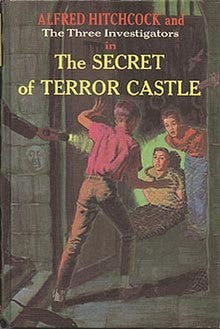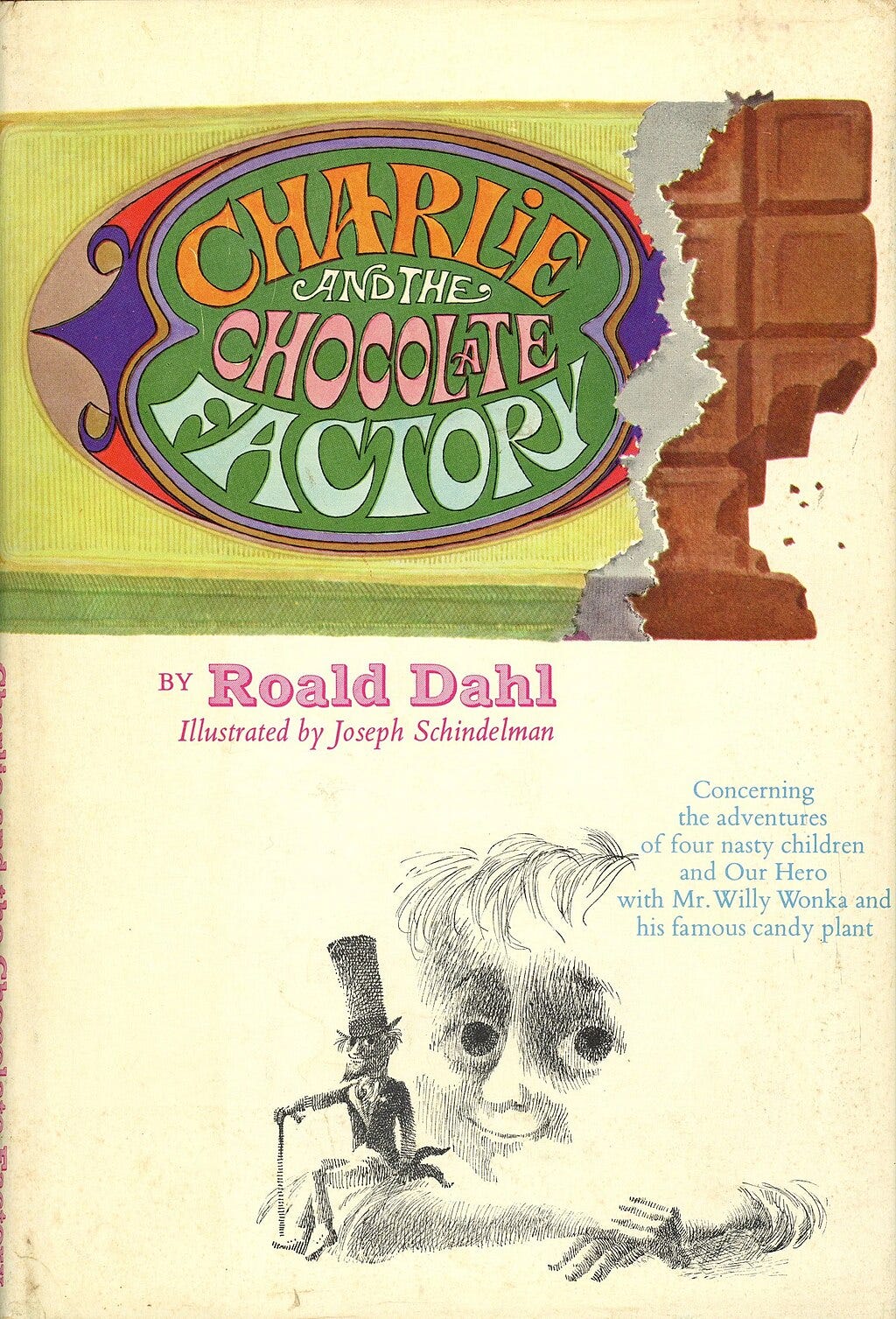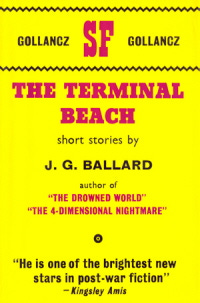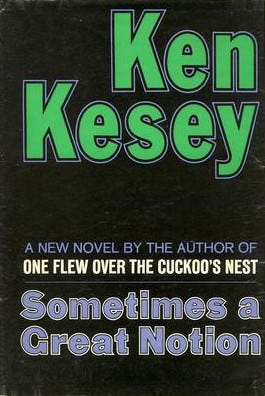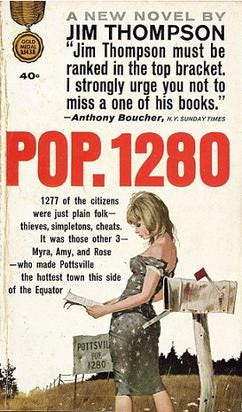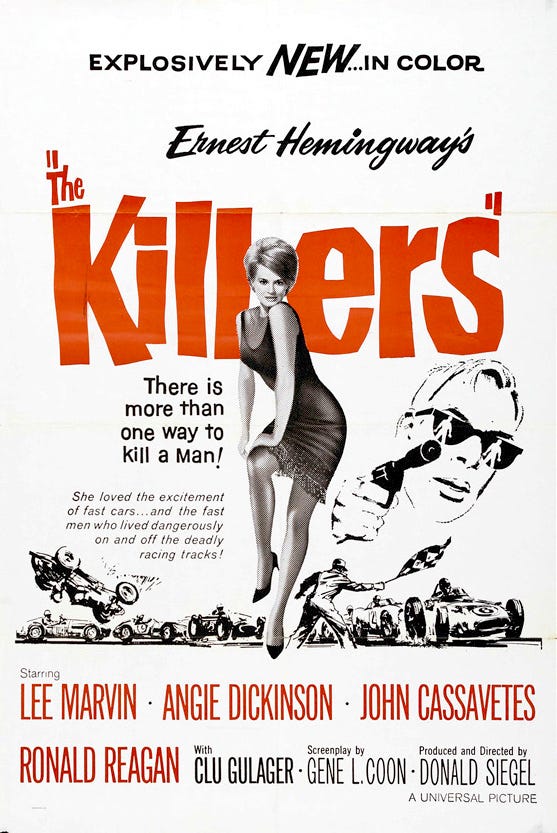Welcome aboard The Bus!
The Stop
In the second part of the Turning 60 in ‘24 miniseries, today’s Stop is a selection of books published in 1964. It was a remarkable year for literature - Saul Bellow’s Herzog, Ernest Hemingway’s A Moveable Feast, Christopher Isherwood’s A Single Man and Arthur Miller’s After the Fall all come to mind - but there were, of course, many others. Here are five to consider.1

The Secret of Terror Castle is the first novel in the American crime and speculative fiction writer Robert Arthur's juvenile detective series, The Three Investigators. In this book, the aspiring young detectives Jupiter Jones, Pete Crenshaw, and Bob Andrews investigate a supposedly haunted house - Terror Castle - in the hopes the acclaimed film director Alfred Hitchcock might use it in an upcoming film and give their new investigation firm a publicity boost. As in most of the books in the series, mysterious events that at first appear to be supernatural are in the end scientifically explained, a deliberate choice by Arthur who wanted to champion reason and rationality over superstition.2
Charlie and the Chocolate Factory is Roald Dahl’s most famous children’s novel. Based on Dahl’s childhood experience of competing chocolate companies, their trade secrecy and industrial espionage, the story of Charlie Bucket - a poor boy winning a Golden Ticket for a tour of the enigmatic Willy Wonka’s factory - has been made into two major motion pictures. While both films (in particular the 1971 version) are good, the novel’s portrayal of Charlie and his grandfather’s adventure within the factory amidst the flawed other children - Augustus Gloop's gluttony, Veruca Salt's entitlement, Violet Beauregarde's obsession with gum, and Mike Teavee's dependence on television - remains superior.
The Terminal Beach is a book of science fiction short stories by J. G. Ballard. Considered one of his finest collections, the stories explore many of the themes Ballard would continue to investigate throughout his career - in particular, the complex relationship between humanity, technology and nature. For instance, the excellent title story concerns a man who’s inability to cope with the death of his family forces him to relocate to a desolate, irradiated island once used for nuclear testing. Here, amidst the rubble of decaying buildings and military detritus, he slowly disintegrates both physically and psychologically on what had once been one of the most beautiful, pristine atolls in the South Pacific.
Sometimes a Great Notion is Ken Kesey’s second novel. Though his first - One Flew Over the Cuckoo’s Nest (1962) - was more successful and popular, for many critics (including me) this one is better. Similar to its predecessor, Sometimes a Great Notion tackles themes of individuality and rebellion within a fractured community, but this time it’s set against the backdrop of a Pacific Northwest logging strike. The story of the Stamper family - gyppo loggers who defy the union and continue working - is truly epic in scope in its unflinching examination of masculinity, family bonds, and the ultimately destructive nature of pride.
Pop. 1280 is one of the hardboiled crime fiction writer Jim Thompson’s best novels. Delving deeply into moral ambiguity and societal corruption in its setting of a small Southern town, the story follows Sheriff Nick Corey, a seemingly incompetent official who in fact harbours a dark, psychopathic personality. Described by NPR’s Stephen Marche as Thompson’s ‘true masterpiece, a preposterously upsetting, ridiculously hilarious layer cake of nastiness, a romp through a world of nearly infinite deceit’, the novel is incredibly effective at blurring the lines between good and evil - and forcing its readers to question the nature of power and justice.
The Detour
Today’s Detour is to a short (4:35) feature - originally aired on 20 April 1971 - about Australia’s CWA Knitting Competition. It was serious business - and a great snapshot from the past. You know knitting is serious when they powder the needles.
CWA Knitting Competition (ABC News)
The Recommendation
Today’s Recommendation is The Killers. Directed by Don Siegel and starring Lee Marvin, John Cassavetes, Angie Dickinson and Ronald Reagan,3 the film, based on the short story by Ernest Hemingway, is a stylish and brutal example of American neo-noir. Loyalty and betrayal, hunter and hunted - these lines are blurred in a film that forces its audience to question the nature of violence. Highly recommended.
The Sounds
Today’s playlist is a selection of five great tracks from 1964:4 ‘You Really Got Me’ (The Kinks, The Kinks), ‘Where Did Our Love Go’ (The Supremes, Where Did Our Love Go), ‘House of the Rising Sun’ (The Animals, The Animals), ‘Wishin’ and Hopin’’ (Dusty Springfield, A Girl Called Dusty) and ‘The Way You Do The Things You Do’ (The Temptations, Meet the Temptations). Enjoy!
The Thought
Today’s Thought is a rather sobering line from the character Charlie Strom (Lee Marvin) in The Killers:
‘You see, the only man that's not afraid to die is the man that's dead already.’
If you have a thought on this Thought - or any part of today’s issue - please leave a comment below:
And that’s the end of this Stop - I hope you enjoyed the diversion!
Thanks to everyone who subscribes - your interest and support is truly appreciated. If you like The Bus, please SHARE it with a friend or two.
If you haven’t climbed aboard The Bus, please do!
If you like The Bus, why not check out other newsletters?
The Sample sends out articles from blogs and newsletters across the web that match your interests. If you like one, you can subscribe with one click.
Until the next Stop …
I am a fan of all these books, and can (mostly) remember the circumstances when I first read them. In particular, I recall picking up the The Three Investigators one from the Transylvania County Library on a rainy summer’s day and devouring it on the sofa in our den sometime in the late 70s; relishing the Kesey novel after finally reading its predecessor in the mid-90s; and being thoroughly captivated (following a recommendation by my friend David) by the Thompson novel in my first year in grad school. Books that stick with you are important not only because of where they take you - but because they can remind you where you were when you entered their worlds. Sources for today’s Stop include personal knowledge and eponymous Wikipedia entries.
Alfred Hitchcock actually has nothing to do with this series, other than appearing as a very minor character on the rare occasion. Arthur - who was involved with the Alfred Hitchcock Presents story collections and television series - used the director’s name as he thought it would attract attention. Fun fact: the series is especially popular in Germany.
In his last role before entering politics. And I’m not sure if it means anything, but his hair in the film is exactly the same as it was when he was president.
Though I know it’s a song of its time, the Springfield track’s sexual politics are more than suspect.



